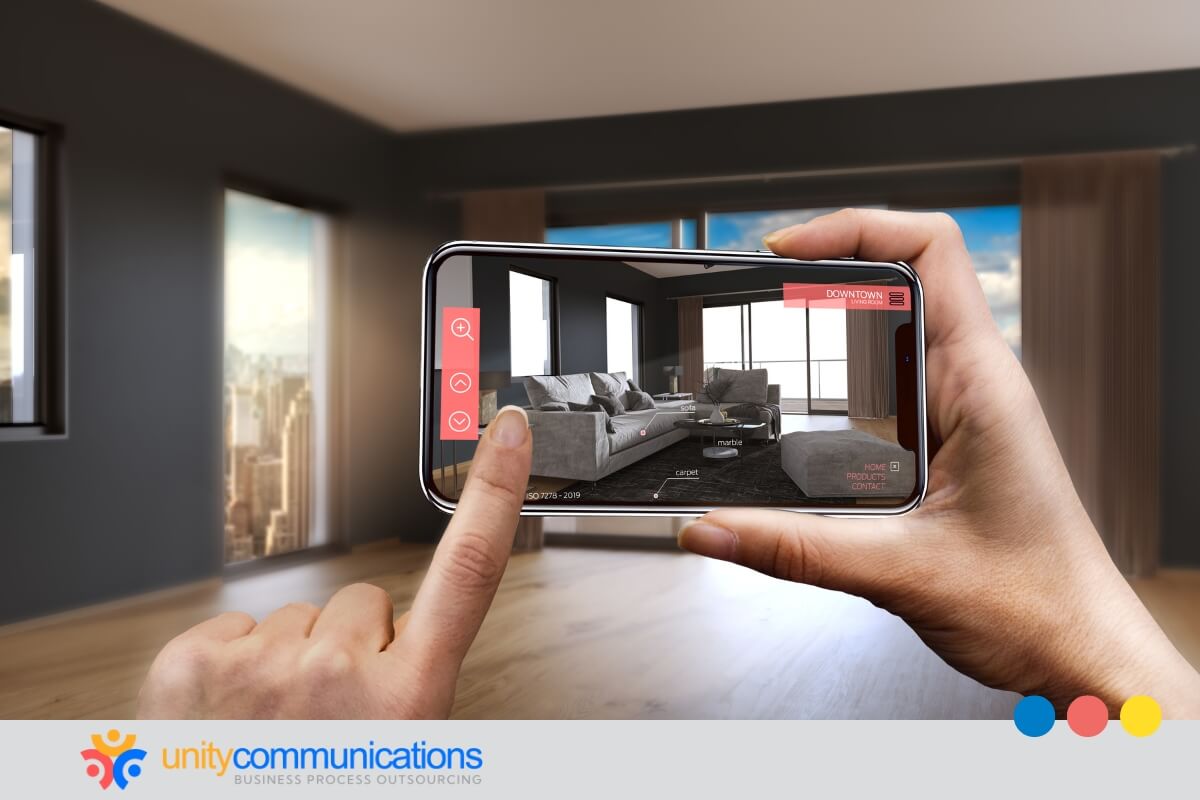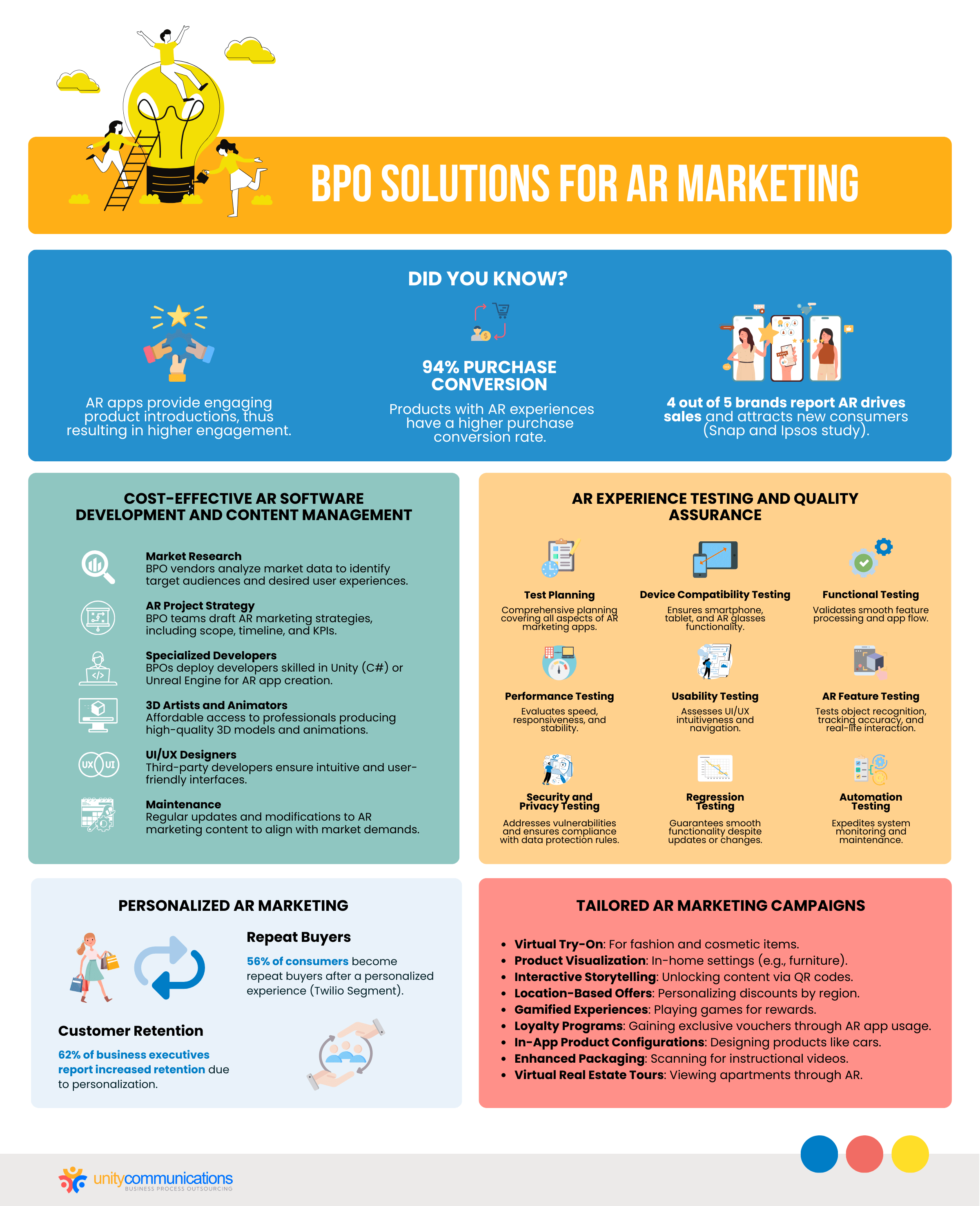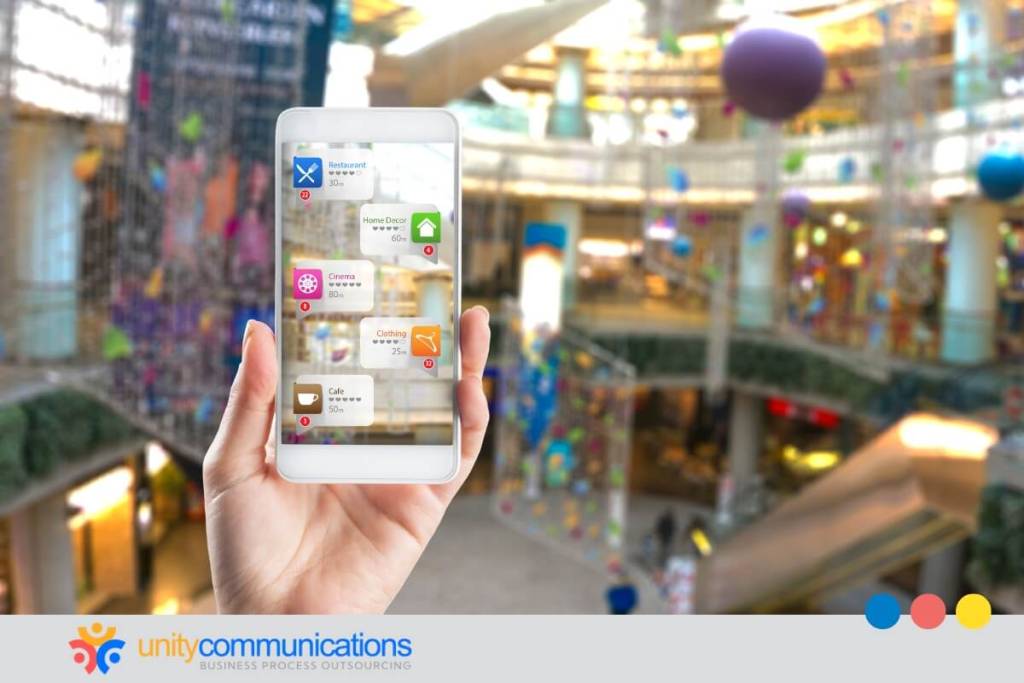IN THIS ARTICLE
Table of Contents
Amid technological advances, customers seek immersive online shopping experiences. Enterprises thus integrate augmented reality (AR) into their marketing strategy to let buyers use products remotely before making a purchase decision.
However, the success of AR technology for product promotions depends on your company’s ability to handle massive amounts of data and customers simultaneously. When juggling this tedious task with your primary projects, you may encounter costly delays and errors.
Business process outsourcing (BPO) has now burst into the limelight. Service providers deliver cost-effective BPO solutions to revolutionize AR marketing. Let us discuss how they do it in the succeeding sections.
Why AR Becomes Prevalent in the Marketing Sector

AR-based marketing is critical to enhancing brand experiences. According to recent research by Snap and Ipsos, 79% of consumers want to use AR to interact with products before buying. This cutting-edge solution lets them remotely visualize, share, and collect feedback on their desired items. It makes them more confident in their purchases.
For instance, IKEA launched an AR mobile application called IKEA Place in September 2017 to boost the furniture shopping experience. Using smartphones or tablets, the app lets customers visualize how IKEA furniture fits in their real-life houses.
Users must simply point their device’s camera at the intended spot in their home. For example, the buyer wants a new couch to match their living room’s newly painted blue wall. The IKEA Place app then displays a 3D model of a gray sofa to see if it blends well with the space.
As of 2021, Ingka reported that the app has an average rating of 4.6 stars with 31.3 million downloads. It contains features that urge buyers to use it repeatedly to seek new inspirational content. Hence, the app gained an average user retention rate of 25% a month after its release.
BPO Solutions for AR Marketing

The prevalence of AR apps is integral to digital marketing for more personalized and immersive customer experiences. As showcased by the IKEA Place platform, AR tech helps introduce products highly engagingly. It assists buyers in making the right choice without needing in-store visits.
In the same study by Snap and Ipsos, four out of five brands stated AR drives sales and attracts new consumers. The researchers also recorded a 94% higher purchase conversation rate for products with AR-based customer experiences.
Despite such benefits, deploying AR for marketing is costly, especially when you have a large customer base. Developing your custom AR app in-house is more expensive than using pre-built ones or outsourcing the process.
This is where many businesses ask: “What is BPO’s role in addressing such gaps?” Let us tackle how BPO solutions can help improve AR marketing campaigns without costly resource investments.
Cost-effective AR Software Development and Content Management
Service providers employ well-trained professionals and advanced technologies to simplify software development and content management for AR marketing. They combine human expertise with artificial intelligence (AI) and automation to streamline the following efforts:
- Analyze and set specific AR marketing requirements and goals. Through comprehensive market research, BPO vendors help identify the target audience and the desired user experience. They outline the necessary features a client wants to highlight in an AR marketing app.
- Develop an innovative plan for the AR marketing project. After clarifying the objectives, the BPO team drafts a strategy for AR marketing campaigns. The document outlines the effort’s scope, timeline, and key performance indicators (KPIs) used to measure success.
- Deploy developers who specialize in creating interactive AR apps. These experts use programming languages such as Unity (C#) or Unreal Engine to build apps for AR marketing. They ensure these platforms are compatible with various mobile devices.
- Provide affordable access to skilled 3D artists and animators. These specialists use advanced BPO solutions to produce high-quality 3D models and animations for AR marketing apps. These assets deliver visually appealing and realistic AR experiences to customers.
- Employ user interface (UI) and user experience (UX) designers. Third-party UI/UX developers create intuitive and user-friendly interfaces for AR apps. They ensure users receive a positive and engaging experience while using the platform.
- Monitor and maintain AR marketing content. This process includes knowledge bases and in-app features. The BPO team performs regular app updates and content modifications to avoid bugs and data errors. They ensure assets and resources align with changing market demands and seasonal themes.
Streamlined AR Experience Testing and Quality Assurance
BPO companies use robust solutions to speed up AR marketing platform testing and quality assurance activities. They execute up-to-date and industry-specific strategies to achieve smooth, high-quality app performance. Ultimately, they help avoid delays and lags by conducting the below tasks:
- Comprehensive test planning involves outlining the testing processes, objectives, and KPIs. Service providers ensure this plan covers all aspects of the AR marketing app that require examination.
- Device compatibility testing verifies an AR app’s ability to function on multiple devices. These gadgets include smartphones, tablets, and AR glasses.
- Functional testing validates the smooth processing and flow of an AR app’s features. This action ensures the platform runs seamlessly, improving customer satisfaction.
- Performance testing includes resource-intensive activities, such as rendering animations and 3D models. This activity evaluates the app’s speed, responsiveness, and stability under different circumstances.
- Usability testing checks the overall UI/UX condition of the AR app. Third-party providers assess the app’s intuitiveness and navigation flows to see how well users engage with AR app-based content.
- AR feature testing ensures the app correctly integrates augmented elements into the user’s real-world environment. BPO teams test AR app features such as object recognition, tracking accuracy, and real-life interaction.
- Security and privacy testing determines and addresses potential vulnerabilities in the AR app beforehand. As part of the BPO’s roles and responsibilities, third-party experts ensure the app complies with relevant data and privacy protection rules.
- Regression testing considers frequent updates or changes in AR marketing campaigns. This process guarantees smooth app functionality despite new features or modifications.
- Automation testing examines how fast an AI-based in-app feature expedites AR system monitoring and maintenance. The procedure enables quicker feedback on the app’s performance.
Moreover, support vendors actively seek user feedback during the testing process. They prioritize those insights collected in the beta phase, where selected users can use the app before the official launch.
The third-party team documents the results and reports them to the client for effective issue resolution. This quality assurance approach helps immediately mitigate issues that may impact user satisfaction.
Personalized AR Marketing
Tailoring promotional campaigns to customer preferences is among BPO’s key contributions to AR marketing. According to the latest statistics from the Twilio Segment, 56% of polled consumers become repeat buyers after a personalized experience. Meanwhile, 62% of business executives saw increased customer retention due to personalization initiatives.
Service vendors value such advantages. They conduct comprehensive market research to deliver insights into customer behaviors and engagement patterns. The results help them develop tailored AR marketing campaigns, such as:
- Virtual try-on for fashion and cosmetic items (e.g., remote fitting of animated makeup)
- Product visualization in home settings (e.g., furniture and home decorations)
- Interactive brand storytelling (e.g., scanning QR codes to unlock interactive content)
- Location-based offers (e.g., personalizing discounts in select regions).
- Gamified experiences (e.g., playing puzzle games in exchange for rewards)
- Loyalty programs (e.g., gaining exclusive vouchers based on AR app usage)
- In-app product configurations (e.g., designing a car through the AR platform)
- Enhanced packaging (e.g., scanning the package for interactive instructional videos)
- Virtual real estate tours (e.g., viewing a new apartment through the AR app)
The Bottom Line

Businesses have experienced significant benefits when integrating AR technology into their marketing campaigns. The modern tool allows customers to use their desired products remotely and cost-effectively, increasing consumer satisfaction and retention.
Enterprises outsource their AR-based marketing platforms to avoid the high expense of managing and maintaining applications. They let providers handle the tedious tasks such as software development and testing to focus on their primary efforts. Acquiring BPO solutions also helps them deliver more personalized AR marketing campaigns.
Let’s connect if you want to learn more about a service provider’s role in enabling AR-powered promotional projects. Unity Communications has a vast knowledge hub to help answer your concerns regarding this disruptive technology.





